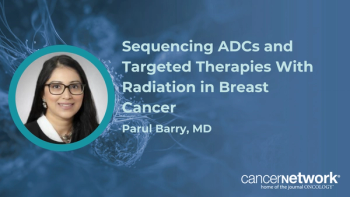
Untangling Breast Cancer Disparities in San Francisco
A new study looked at the characteristics of diagnosed breast cancer cases in San Francisco.
Proportions of
Using the population-based Greater Bay Area Cancer Registry, study researchers identified San Francisco residents who were diagnosed with breast cancer between 2006 and 2015. Medical records were reviewed to extract patient data, such as age at diagnosis, race and ethnicity, and residential address at diagnosis, as well as tumor characteristics, such as stage at diagnosis, tumor size, and tumor subtype. A total of 5622 patients with a diagnosis of invasive primary breast cancer were included as cases in the analysis.
The residential address at the time of diagnosis was used to assign patients to 1 of 9 geographical areas in San Francisco. The geographical areas were defined by the study researchers based on racial and ethnic composition and neighborhood socioeconomic status.
The analysis revealed that the proportion of breast cancer diagnoses varied greatly by geographical area and race or ethnicity. For instance, while black or African American patients represented 7.2% of breast cancer diagnoses overall, they represented 25.5% of the diagnoses in the Southeast areas, that is, Bayview/Hunter’s Point.
In addition, tumor subtype differed by geographical area. For example, geographical areas in the East and Southeast had more diagnoses of triple-negative breast cancer-around 12%-compared with other areas, such as Center-South and Center-West, which were around 8%.
However, the highest concentration of triple-negative breast cancer diagnoses-that is, 20%-was found among black or African American patients, and these higher rates were found across all geographic areas in San Francisco, including those in which the portion of black or AfricanAmerican patients was low.
The analysis also revealed that breast cancer specific survival rates differed by geographic area. The worst 5-year breast cancer specific survival rates were found for the Northeast (88.5%), Center-South (89.7%), and Southeast (89.7%) areas, while the best 5-year breast cancer specific survival rates were found for the North (94.0%) and East (94.1%) areas.
In addition, stage at diagnosis was linked to geographical area, with patients living in the Center-West area having a 1.53-fold higher odds (95% CI, 1.16-2.02) of having a later stage (stage IIB+) diagnosis compared with patients living in the North area, which had the higher proportion of wealthy non-Hispanic white residents.
When survival was evaluated by race and ethnicity, black or African-American patients had the worst 5-year breast cancer specific survival rate of 81.8% while the other groups, that is, Hispanic or Latino, non-Hispanic white, and Asian American, Native Hawaiian, or Pacific Islanders, all had at least 90%.
“Given what our research has revealed regarding breast cancer health disparities in San Francisco, our present challenge will be to design programs and interventions that could more effectively promote breast cancer preventive behaviors and access to appropriate care among the city’s most impacted racial/ethnic groups,” the study authors wrote.
References:
Breast Cancer in San Francisco: Disentangling Disparities at the Neighborhood Level
Alice Guan, Daphne Y. Lichtensztajn, Debora Oh, Jennifer Jain, Li Tao, Robert A. Hiatt, Scarlett Lin Gomez and Laura Fejerman
Cancer Epidemiol Biomarkers Prev September 23 2019 DOI: 10.1158/1055-9965.EPI-19-0799
Newsletter
Stay up to date on recent advances in the multidisciplinary approach to cancer.










































